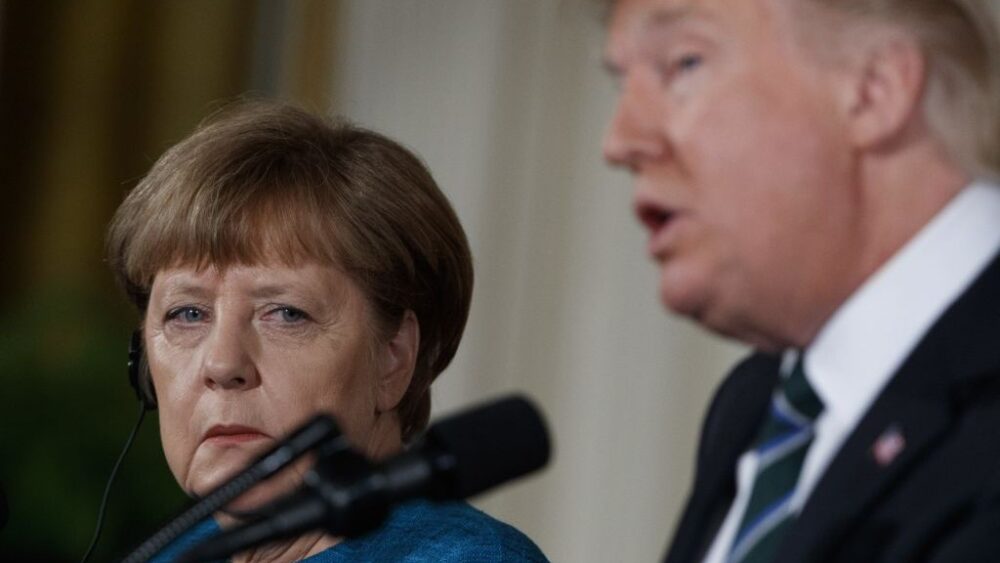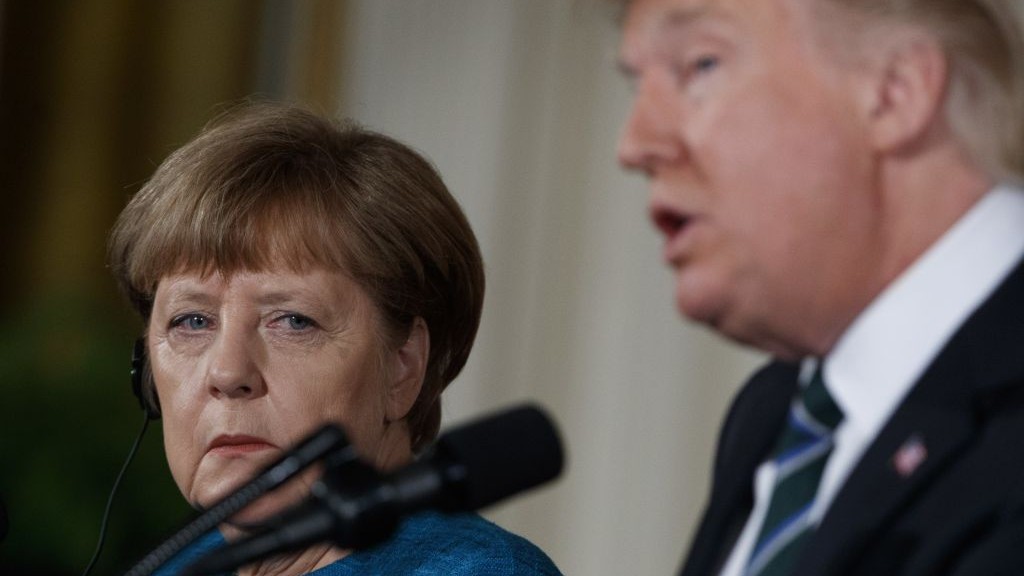BY: Mohammad Ghaderi

PEJOURNAL – The United States has had a turbulent history under each of its presidents, but it has been an important part of world and Western history in the context of developments as a political and international figure.
In particular, the process of America’s rise to power with the decline of Europe during the First and Second World Wars in shifting new roles and positions in the international system shifted “West-centered” to “West-centered” in such a way that Europe became an American project for US interests after World War II.
With the US victory in the Cold War and the second US invasion of Iraq in 2003, when Washington was not backed by Germany and France, differences of opinion became apparent. After the Cold War, Europe sought to form a European format that could maintain its political and military independence while maintaining relations with the United States and NATO.
After 70 years of efforts, the Green Continent has not yet been able to be considered as the first target in the possible nuclear conflict between Russia and the United States under the pressure of the United States, and on the other hand, to play with the actors in the field as much as possible. Be global politics.
The differences between Europe and the United States in shaping the Green Continent into the third millennium began with the time of George W. Bush, and more seriously with Trump. Prior to Trump, American interests in foreign relations were defined on the basis of the idea of globalization and the international system, which reflected common American and European values; Until Trump’s “America First” project emerged as a hidden conservative trend in the US political sphere with the idea that “Western Europe” should be increasingly “West American” and along with it Transform “America-centered world”.
The idea of “America First” is part of a long-standing, 200-year-old unilateralist tradition that from the beginning denied having permanent allies and in a populist atmosphere called for industrial progress, the realization of ideals, and the strengthening of American culture inside and outside the United States. The first question for “America First” was why the United States should incur costs that the Europeans themselves could not bear, and sometimes did not even want to bear the costs of their own security.
Ronald Reagan re-introduced the “America First” project as a slogan in the 1980s. An idea that had never become a strategy in two centuries because it was wrong and rejected by strategists. But Trump turned the idea of “America First” into a strategy to get rid of Europe’s heavy security costs.
Trump’s extremist policies, which began with support for a protectionist economy and foreign policy without joint international cooperation, showed that Trump’s approach to “America First” is a concept in which the United States does not need Europe and is so powerful that power it can maintain its hegemony without material and human costs and accepting more responsibility outside its borders and without playing the role of a good policeman or a good firefighter for Europe.
Among European leaders, Trump’s “America First” approach was hailed as the isolationism of a covertly conservative tendency that is repeated at various intervals in the US political sphere. This view contradicted Trump’s reading that the “America First” plan did not mean “America Alone” and that the Trump administration was prepared and willing to negotiate bilateral trade agreements. Disagreements and unsupported extremism by Trump’s team paved the way for the United States to become increasingly isolated in the international community, laying the foundation stone for “America First” as “the loneliest America in history.”
Prior to Trump, global challenges had global solutions based on Euro-American cooperation. But Trump’s view of Europe and global crises was different. The miscalculation and strategic error of the Trump administration team were that they did not think that Europe and the rest of the world would look at Trump differently.
The White House also developed a distant understanding of Europe and other countries. Trump has spoken of Europe as a rival or, at times, even an economic enemy, calling the challenge to relations with China an economic war. Trump did not spare even his former strategic ally, Theresa May, and called her insane.
Trump made it so that America’s European allies could no longer work together to jointly defend Western interests and values. The “international community of the West” and the credibility of common Western values by Trump, who was not concerned with foreign policy, have been called into question worldwide.
American regression under Trump is no longer a support for Western multilateralism and transatlantic relations. Thus, changes in the world order have become more different in the perceptions of Europe and the United States about the pursuit of interests.
Of course, the United States has the power to solve its problems with great powers such as Russia and China, but the Europeans have missed their opportunities. Over the past seven decades, Europe has expanded its relations with the United States on the rational idea of supporting globalization and the international system, through the formation of regional alliances and trade agreements.
Europe now realizes that even with power and economic development, there is no longer a secure space for kinship and friendship with the United States.
Trump discredited the achievements of the Green Continent over seven decades by encouraging Britain to leave the European Union and challenging the EU integration process. Europe now has to deal with the consequences of these developments for years.
Europe, which lacks even the capacity to maintain the status quo, and the only means of influencing the foreign policy of EU member states is only the permanent membership of Britain and France in the UN Security Council, that Trump alone in challenging Iran and leaving JCPOA has also played with the sole international outcome of Europe to the world stage.
Lack of planning in “Western Europe and the United States” during the four years of the Trump administration; It will pave the way for the differentiation of the approaches of the parties in the face of the emerging realities of the world in the third millennium; And it will further escalate tensions and divisions within the West.
Many of the EU’s problems today, from tackling climate change to fair trade, tackling migration, and terrorism, as well as choosing outside the international system, will not be resolved through the cooperation of European countries alone.
In the current situation, the European Union cannot find a solution to its problems in the face of the external environment, especially the challenges related to foreign policy activities with a transatlantic perspective; And in matters relating to relations with Russia, China, or other parts of the world, it still cannot easily change course outside of the same guidelines and coordination that it has had under the rule of cooperation so far with the United States and the international system.
Most countries around the world are now hoping for Biden to win the 2020 election to make the final decision on how to regulate their relationship with the United States, but if Trump is re-elected in 2020, the internationally tolerant view of the United States will change. American society will, and in the not-too-distant future, we will see reverse immigration from the United States, and it will not be long before the majority of American Americans will no longer be influential Europeans.
With or without Trump, the United States has no choice but to accept the “arrangements of the international system,” and it must be borne in mind that even if Trump leaves the White House; the established principles and the basis of “multilateral international relations” will not easily regain their former place. Because the Trump administration has threatened the multilateral order of the international system and subjected the global order to profound changes, the establishment and maintenance of world peace can no longer be guaranteed with absolute certainty.
